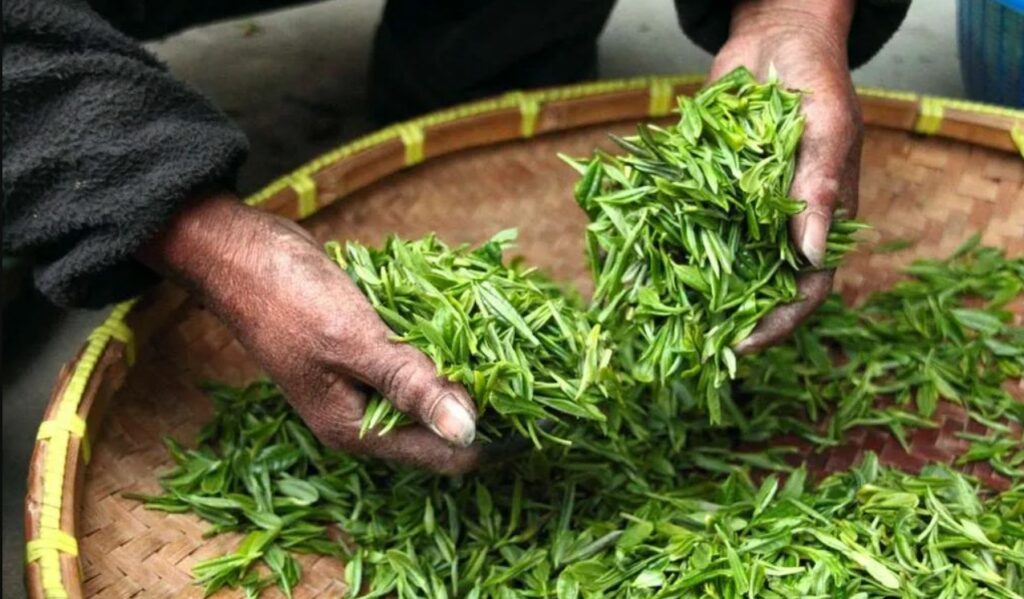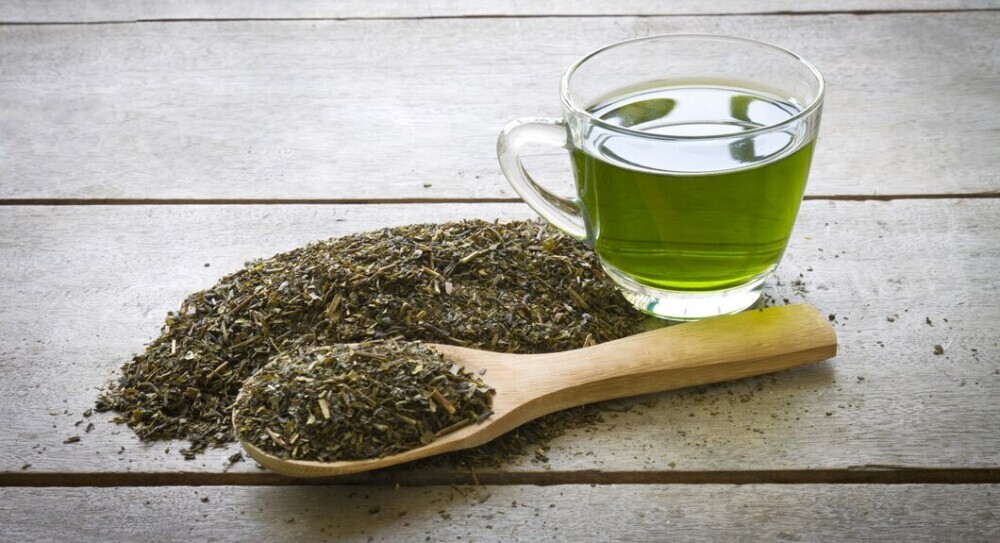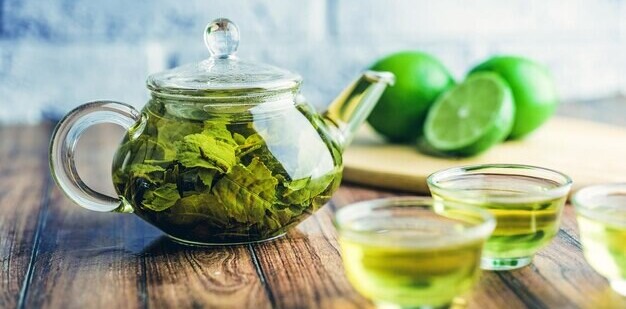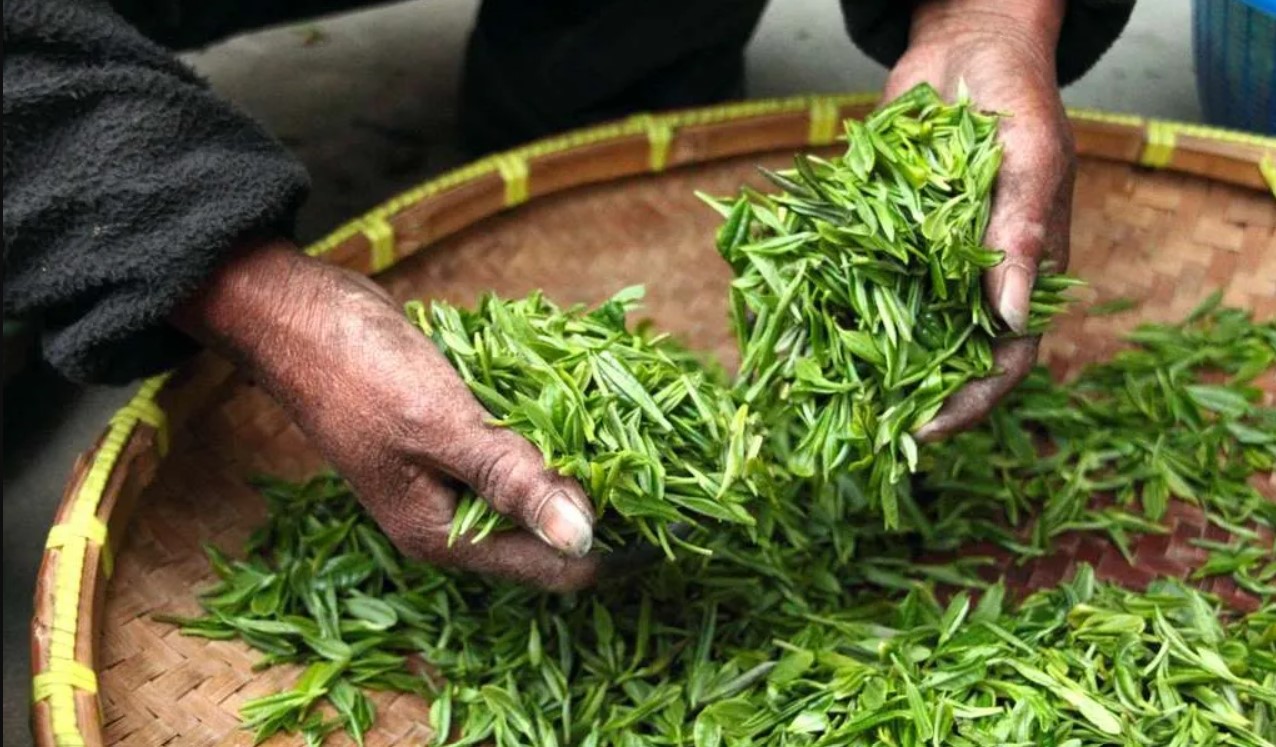
Green tea’s got a fascinating backstory that’s worth sharing. Born in China, it’s one of the planet’s oldest beverages. The leaves come from Camellia sinensis, like all true teas, but what sets them apart is minimal processing. That’s why it keeps a lot of its natural compounds.
Fun Fact: Did you know green tea was once used as medicine before becoming a daily drink?
Green Tea Varieties: A World of Flavors
Green tea’s got loads of varieties, each with its unique twist. Think Sencha, Dragonwell, and Matcha—offering everything from a mild sweetness to a grassy kick. Different regions and climates shape their flavor, making green tea a beloved staple across cultures worldwide.
- Sencha (Japan): Light, grassy, slightly sweet
- Dragonwell (Longjing) (China): Nutty, smooth, and delicate
- Matcha (Japan): Bold, umami-packed powdered tea
Fun Fact: Matcha is made from shade-grown leaves, which boosts its chlorophyll content, giving it that vibrant green color!
Cultural Significance: A Tea That Transcends Borders
Delving into its cultural significance, green tea plays a notable role across various countries. In Japan, there’s a whole ceremonial process around it called ‘chanoyu’, placing a huge cultural emphasis on mindfulness and precision.
Meanwhile, in China, it’s less formal but still holds a major place in social etiquette. No matter where it’s enjoyed, green tea remains a symbol of connection and tradition.
Health Benefits: Why Should You Drink Green Tea?
Green tea isn’t just a tasty drink—it’s a nutrient-packed delight loaded with antioxidants, specifically catechins, which help fight cell damage. Plus, it’s got vitamins like C and B2, along with a modest amount of minerals, making it a health-friendly choice.

1. Antioxidant Powerhouse
- Helps combat free radicals and supports immune health
- May slow signs of aging and promote cellular repair
2. Heart Health Support
- Can help lower bad cholesterol and regulate blood pressure
- Promotes better circulation and cardiovascular health
3. Weight Management Boost
- May increase metabolism and fat-burning potential
- Works best when combined with a healthy diet and exercise
4. Brain Function & Focus
- Contains L-theanine, which promotes calm focus without the jitters
- May enhance cognitive function and long-term brain health
Imagine these antioxidants as your body’s tiny warriors against aging and disease!
Brewing and Consumption: How to Enjoy Green Tea the Right Way
Brewing green tea isn’t just about dunking a bag in hot water—temperature and steeping time make all the difference.
Basic Brewing Tips:
- Water Temperature: 160-180°F (Too hot? Your tea will turn bitter!)
- Steep Time: 1-3 minutes (Longer steep = stronger flavour)
- Loose Leaf or Bag: Loose-leaf tea often gives a richer taste

Experiment with Brewing Methods:
- Hot Brew: The classic way—steep for 2 minutes and enjoy
- Cold Brew: Soak tea leaves in cold water overnight for a naturally sweet, refreshing drink
- Matcha Preparation: Whisk matcha powder with hot water for a frothy, smooth experience
Experimenting with brewing techniques can open up a world of flavor. Try cold brewing for a smoother, sweeter taste, or using a traditional teapot to bring out those nuanced flavors even more. Each method tweaks the taste, so have some fun and see what tickles those taste buds best.
Pairing Green Tea with Food
Green tea pairs beautifully with:
- Sushi – Enhances delicate seafood flavours
- Salads – Complements fresh greens and citrus dressings
- Light pasta dishes – Balances creamy or herby sauces
Fun fact: The clean taste of green tea enhances the subtle flavours of your meal!
Addressing Concerns: Green Tea Myths and Facts
Let’s clear the air on some common green tea myths.
Myth #1: Green Tea is a Magic Weight-Loss Drink
Fact: It can aid metabolism, but it’s not a miracle cure—diet and exercise still matter.
Myth #2: Green Tea Has No Side Effects
Fact: Some folks might experience stomach upset or even a bit of caffeine sensitivity. It’s always a smart move to listen to your body and adjust intake if needed. If that’s you, try drinking it after meals or switching to decaf green tea.
Myth #3: Green Tea Detoxes Your Body
Fact: Green tea’s not a magic detox potion. It’s healthy, sure, with antioxidants that support your liver, but it’s not going to cleanse your system overnight. A balanced diet needs to work alongside it for overall wellness.
How Much Green Tea Should You Drink?
A good rule of thumb: 3 to 4 cups per day. However:
- If you’re sensitive to caffeine, stick to 1-2 cups or choose decaf
- Pregnant women or those with certain health conditions should definitely chat with their doctor before making it a daily habit.
Fun Fact: Green tea contains about 30-50mg of caffeine per cup, compared to 95mg in coffee.
Final Thoughts
Green tea is more than just a drink—it’s a ritual, a health ally, and a flavorful journey. Whether you’re sipping it for relaxation, focus, or health benefits, there’s a perfect green tea out there for you. Try different types, experiment with brewing methods, and enjoy every cup!
So, did I cover it all? If you’ve got any other interesting fact or a secret brewing tip, please spill it in the comments!


I am still trying to find a green tea that I actually enjoy the taste of. I know green tea is really good for you, and lowering my cholesterol is one thing that I do need to do, however, I wish I could enjoy the tea itself. I need one that tastes like camomile tea, then maybe I will like it.
Do you have any suggestions, besides adding honey?
Hi Michel, thanks for your comment. I totally get it—green tea can be an acquired taste, and if you’re not loving it, it’s hard to make it a daily habit! Since you enjoy chamomile, you might want to try a blend that combines green tea with floral or herbal notes. Something like a green tea with jasmine, lemongrass, or even a chamomile-green tea blend could be a nice bridge for you.
Another option is to go for a milder green tea, like white tea or bancha, which has a smoother, less grassy flavor. Hojicha is also a great choice—it’s a roasted green tea with a warm, almost nutty taste, nothing like the typical “green” flavor.
If straight-up green tea still isn’t your thing, you could try cold brewing it! Cold brewing makes it way less bitter and brings out the natural sweetness. Just steep it in cold water for a few hours, and you might be surprised how different it tastes.
Let me know if you’d like specific brand recommendations! 😊
Great post, Nina! I love how you covered everything from the history and cultural significance of green tea to its health benefits and brewing techniques. I did not know that green tea actually had health benefits. The breakdown of different varieties was especially helpful—Matcha’s umami-packed flavor is definitely one that sounds delicious.
One thing I’ve always wondered: does the time of day you drink green tea affect its benefits? For example, is it better to have it in the morning versus the evening?
– Scott
Thank you so much, Scott! I’m so glad you found the post helpful and that the breakdown of different green tea varieties stood out to you—Matcha’s umami-rich flavor is definitely a unique experience!
Great question about the timing of drinking green tea! While you can enjoy it any time of the day, mornings are generally ideal since the caffeine and L-theanine combo provides a gentle energy boost without the jitters. If you’re sensitive to caffeine, it’s best to avoid green tea too late in the evening, as it might interfere with sleep. That said, low-caffeine varieties like hojicha or decaf green tea can be a soothing nighttime option. Hope that helps!
what’s your favorite way to enjoy tea?